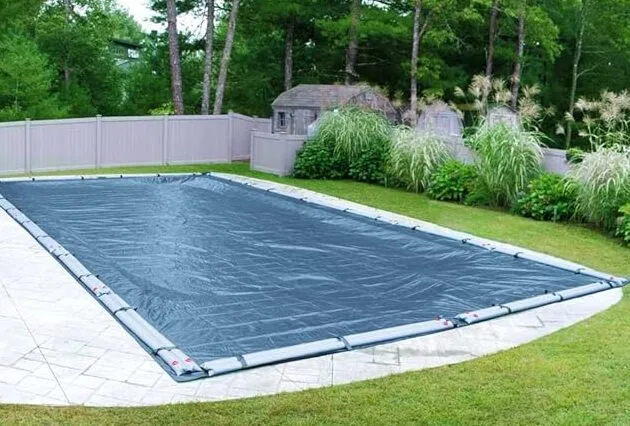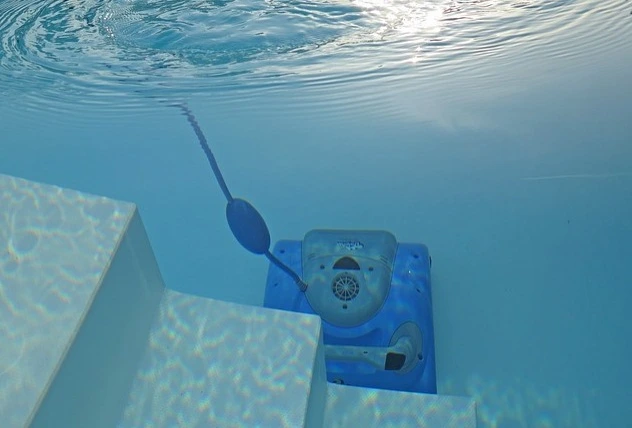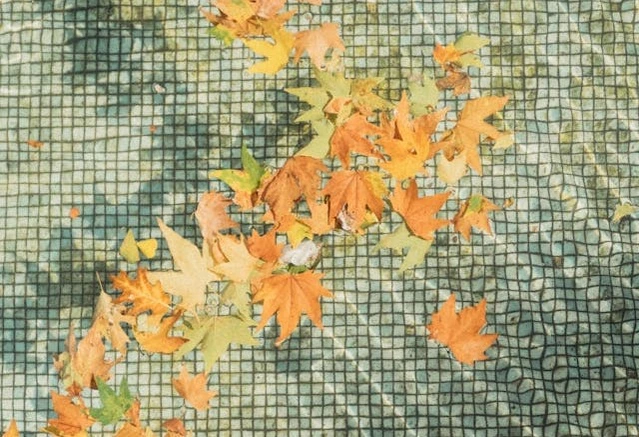
As the cool breeze rolls in and temperatures start dropping, it’s time to decide how to care for your pool during the winter. Should you close it until next spring, or can you keep it open throughout the winter? Whether you live in an area with mild or cold winter, this guide will help you figure out the best way to protect your pool and prevent future costly repairs down the road.
To Close or Not to Close?
It is common practice to cover up your pool during the winter, particularly if your living area experiences freezing weather. But for those in milder climates or for anyone who likes the look of an open pool and maybe. some cold dip time too in the cold season, keeping it running might be worth it. Let’s explore both options to help you decide which one will work for you.
How to Close Your Pool Properly?
If freezing weather is common in your area, closing the pool makes life easier and protects it from damage. Here’s how to do it right:
Deep clean before closing: vacuum the pool, skim out leaves, and scrub the walls. Leaving it dirty can lead to algae growth over the winter.

Balance the water chemistry: Adjust the pH, alkalinity, and chlorine levels to keep the water from becoming too acidic or scaling up. You need to use a reliable pool water testing kit or digital test kits for more accurate results. You’re aiming for a 7.2 to 7.6 range for pH, 80 to 120 parts per million (ppm) of alkalinity and free chlorine, or something about 1 to 3 ppm.
- Lower the water level: to prevent any ice damage, you should drop the water just a little below the skimmer line, and if temperatures fall below freezing in your area, this is a must-have. Be done, step. Depends on your pool systems; use the pool’s drain valve or submersible pump, or use a garden hose to siphon water. The last method takes longer but works without extra equipment.
- Drain and store equipment: After lowering the level of water, it is tiled to remove water from pumps, filters, and hoses, then store them somewhere dry to prevent cracking.
Cover it up: Use a durable winter cover to keep leaves, dirt, and sunlight out, reducing the chance of algae. A tight seal will also prevent pets or children from accidentally falling in.
Closing your pool will save you time and effort in the colder months and give you a head start when it’s time to reopen in the spring.
If You Keep Your Pool Open All Cold Season

If you live in a region where winters are mild or if you simply love the idea of an open pool, it’s possible to keep it running. But it does come with some responsibilities.
Run the pump during freezing spells. Keep the water moving when temperatures dip to avoid frozen pipes. Most systems have a freeze-protection feature, but it’s good to check.
Maintain your chemical levels: Even in cold weather, algae can grow. Test the water every couple of weeks and keep your chlorine levels balanced.
Keep it clean: Skim leaves and debris regularly, as they can clog the system or lead to staining if left too long.
Consider a heater: If you’re serious about winter swims, investing in a heater will keep the water comfortable, though it might bump up energy costs.
Keeping your pool open can be rewarding if you enjoy the view or like a spontaneous swim, but it does require more regular upkeep.
Deciding What’s Right for You
When it comes to choosing whether to close or keep your pool open through fall and winter, a few things can help guide your decision. Climate plays a big role—if freezing temperatures are common, closing the pool is often the smarter choice to avoid expensive damage to the plumbing and equipment. On the other hand, if winters in your area are mild, leaving the pool open might be manageable with just a little extra care.
It’s also important to think about how much time you’re willing to dedicate to maintenance. Even when it’s cold, an open pool requires regular attention—cleaning out leaves, testing chemical levels, and keeping the water moving to avoid problems. If swimming isn’t on your winter agenda, closing the pool can lighten your workload and save on heating and chemical costs. But if you enjoy the view of an open pool or like the idea of the occasional winter dip, it may be worth the effort to keep it running.
Extra Care Tips—Whether You Close Your Pool or Not
Regardless of which route you choose, there are a few tips to help you get through winter easier.
Clean the filters regularly. Whether your pool is closed or open, make sure filters stay free of leaves and debris to avoid any clogs.
Trim nearby trees: Reducing overhanging branches will prevent leaves from falling in, saving you from extra cleaning.
Check on your cover: A tight, secure cover keeps debris out and prevents unwanted sunlight from algae growth. It’s also a good idea to use a cover pump to remove any rainwater or snow that collects on top. It can stretch the cover down and cause damage over time.
By keeping an eye on these minor details, you can ensure that your pool stays in good shape. No matter how cold it gets outside, you can rest easy knowing it’s protected.
Spring will come before you can even notice it, and your pool will be ready for that first warm day.

Leave a Reply